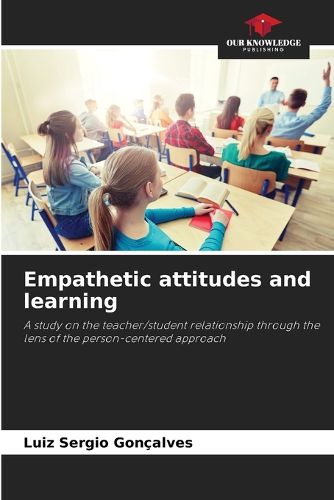Readings Newsletter
Become a Readings Member to make your shopping experience even easier.
Sign in or sign up for free!
You’re not far away from qualifying for FREE standard shipping within Australia
You’ve qualified for FREE standard shipping within Australia
The cart is loading…






My daily work as a psychologist, mainly in a juvenile court in a very poor municipality in the Baixada Fluminense region of the state of Rio de Janeiro, has confronted me with a challenging reality. One of my duties was to study and facilitate the inclusion of children and adolescents in the school system, considering that school failure and dropout rates are very high. But how could I work towards school inclusion, in the fullest sense of the term, involving regular attendance and real learning, if the reports I heard from these children and adolescents described a school that was, for the most part, uninteresting and unmotivating for learning? This question led me to develop a master's degree research project in the field of education at the Federal University of Rio de Janeiro (UFRJ). My research question stemmed from the possibility of actions or attitudes on the part of teachers that could facilitate student learning and motivate them to learn and stay in school. From this question arose the hypothesis that empathetic attitudes, closeness, and inclusion in knowledge could constitute motivation.
$9.00 standard shipping within Australia
FREE standard shipping within Australia for orders over $100.00
Express & International shipping calculated at checkout
Stock availability can be subject to change without notice. We recommend calling the shop or contacting our online team to check availability of low stock items. Please see our Shopping Online page for more details.
My daily work as a psychologist, mainly in a juvenile court in a very poor municipality in the Baixada Fluminense region of the state of Rio de Janeiro, has confronted me with a challenging reality. One of my duties was to study and facilitate the inclusion of children and adolescents in the school system, considering that school failure and dropout rates are very high. But how could I work towards school inclusion, in the fullest sense of the term, involving regular attendance and real learning, if the reports I heard from these children and adolescents described a school that was, for the most part, uninteresting and unmotivating for learning? This question led me to develop a master's degree research project in the field of education at the Federal University of Rio de Janeiro (UFRJ). My research question stemmed from the possibility of actions or attitudes on the part of teachers that could facilitate student learning and motivate them to learn and stay in school. From this question arose the hypothesis that empathetic attitudes, closeness, and inclusion in knowledge could constitute motivation.